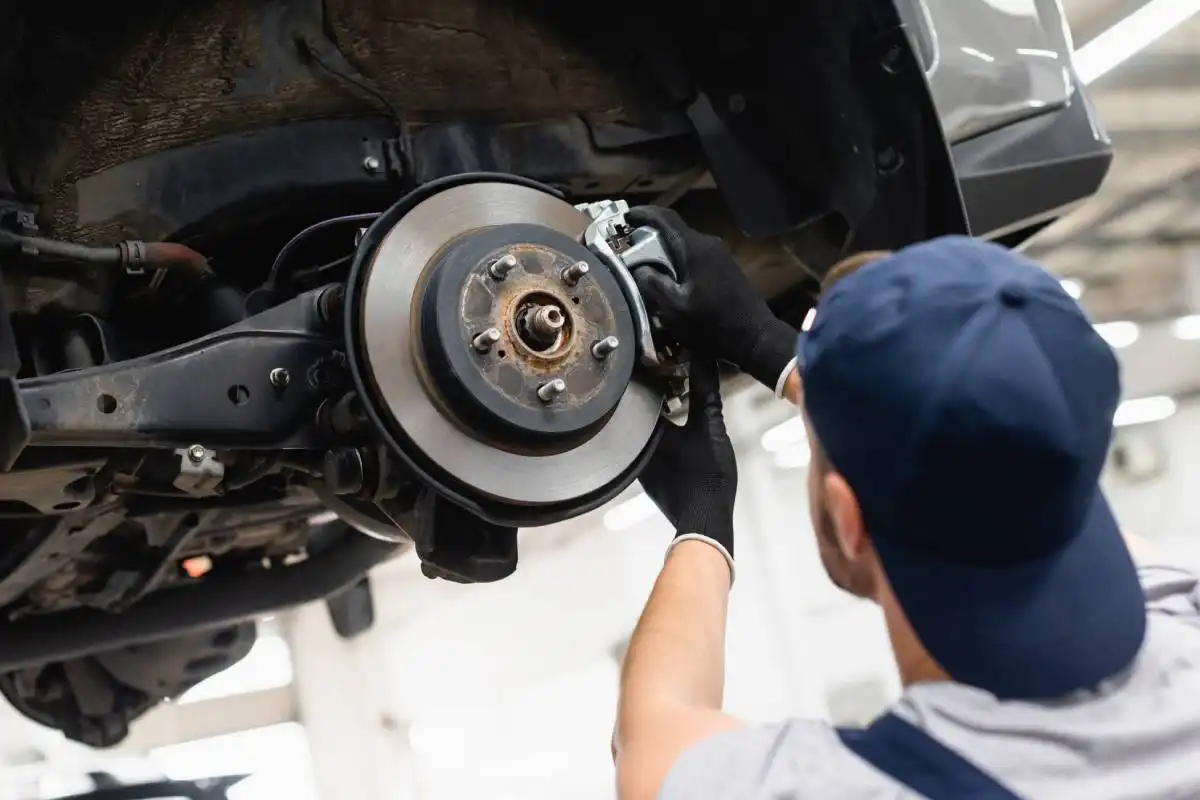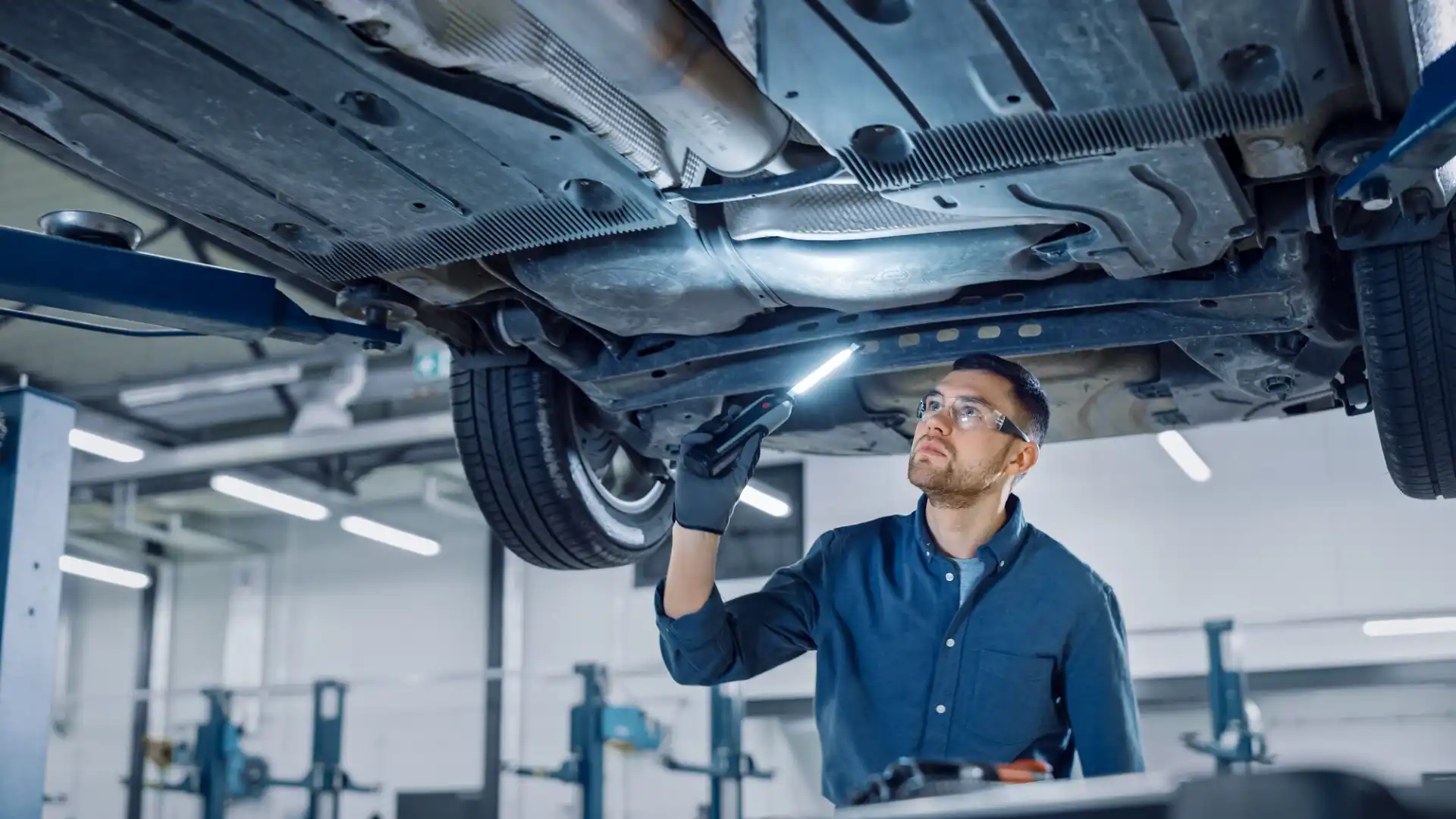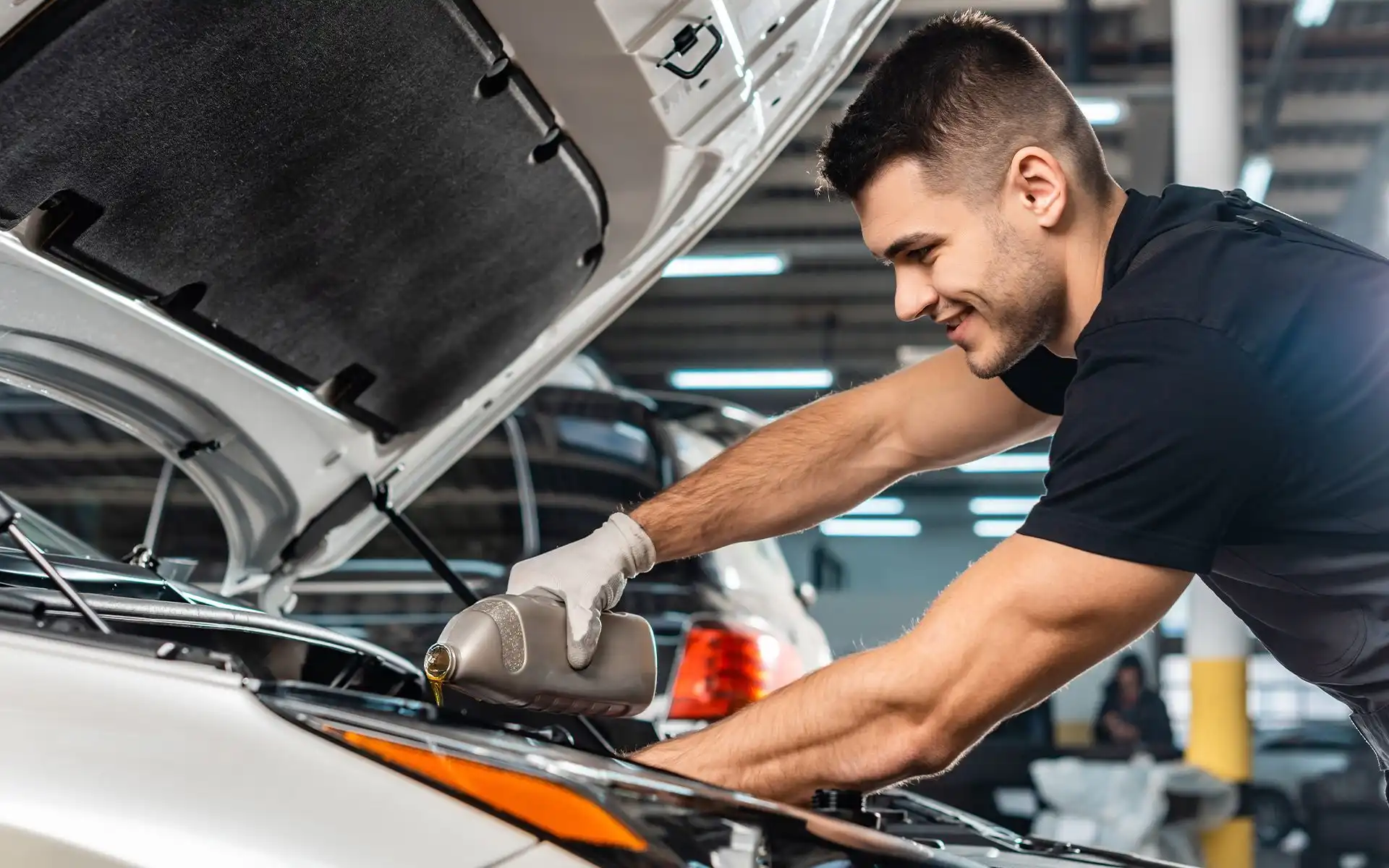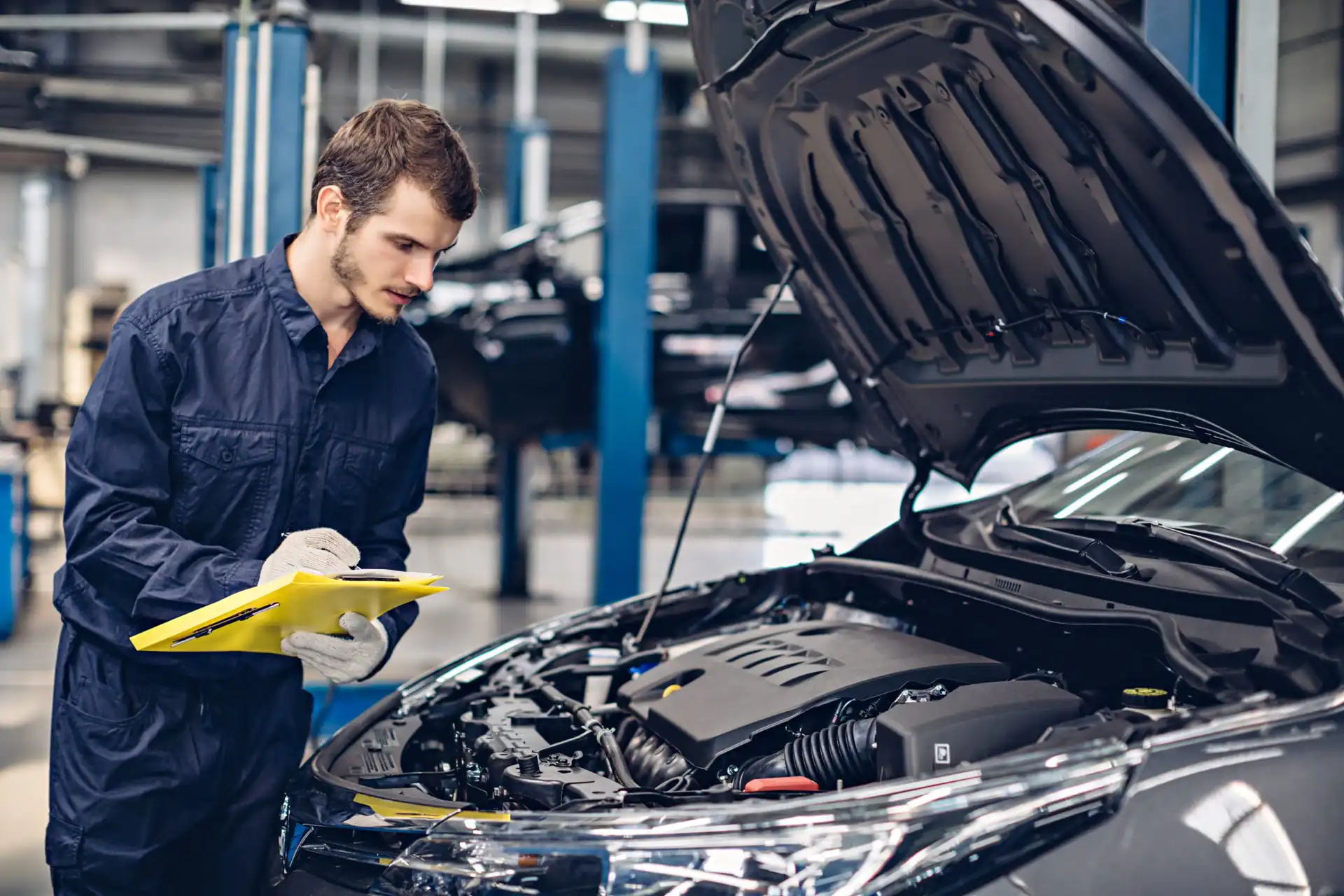Your car’s braking system is one of the most important safety features, and keeping it in top condition is crucial for your safety and the safety of others on the road. Over time, brakes naturally wear down, and if not addressed, this can lead to more significant problems that could put you at risk of an accident. Knowing when to get a brake inspection is key to maintaining a safe driving experience.
In this blog, we’ll go over the common signs that your car needs a brake inspection, so you can stay ahead of potential issues and avoid costly repairs down the road.
1. Squeaking, Squealing, or Grinding Noises
One of the most obvious signs that something is wrong with your brakes is when they make unusual noises. These noises can indicate a variety of issues, ranging from normal wear to more serious problems.
-
Squeaking or Squealing: If you hear a high-pitched squeaking or squealing noise when you apply the brakes, this may mean that the brake pads are worn down. Most modern brake pads have a built-in indicator that creates noise when it’s time to replace the pads.
-
Grinding Noise: If you hear a grinding sound, it’s often a sign that the brake pads are worn completely down, and the metal components are rubbing against each other. This can damage the brake rotors and lead to costly repairs.
What to do: Don’t ignore these noises! Schedule a brake inspection immediately to avoid further damage to the braking system.
2. Vibrating or Pulsating Brake Pedal
If you notice your brake pedal vibrating or pulsating when you apply the brakes, it’s an indication that your brake rotors may be warped or uneven. This can occur if the rotors become overheated or are subjected to excessive stress, causing them to become misshapen.
Why it’s a problem: Warped rotors cause an uneven surface, which disrupts the smooth braking process, leading to vibrations. If not addressed, this issue can make it difficult to stop the vehicle safely and cause more extensive damage to the braking system.
What to do: A mechanic will need to inspect your rotors and either resurface or replace them as necessary.
3. Soft or Spongy Brake Pedal
When you press down on the brake pedal, it should feel firm and responsive. If the pedal feels soft, spongy, or goes all the way to the floor, there’s likely an issue with your brake system. This could indicate air in the brake lines or a brake fluid leak.
Why it’s a problem: Soft brakes can severely impair your ability to stop quickly, increasing the likelihood of an accident. If you suspect a brake fluid leak or air in the lines, it’s important to get a brake inspection as soon as possible.
What to do: A brake fluid flush or brake line inspection may be required to fix the issue. In some cases, a brake fluid leak could indicate more serious problems, such as damaged brake lines or a faulty master cylinder.
4. Pulling to One Side When Braking
If your car pulls to one side when you apply the brakes, it could be a sign of uneven brake pad wear, a stuck caliper, or even issues with your vehicle’s alignment. This problem can make braking less effective and cause your car to drift, which is dangerous while driving.
Why it’s a problem: Pulling to one side while braking can cause difficulty maintaining control of the vehicle, especially in emergency braking situations. It’s also a sign that the brake system is not functioning as it should, which can lead to further damage.
What to do: Have a mechanic inspect the brake pads, calipers, and suspension system to identify the cause of the pulling and get it fixed.
5. Unusual Smells (Burning Odor)
A burning smell when you apply the brakes is a clear warning sign that something is wrong. This could indicate overheated brake pads or an issue with the brake fluid. If the odor is particularly strong, it could also be a sign that the brakes are dragging, or there is excessive friction in the brake system.
Why it’s a problem: A burning smell is usually a sign that the brakes are being overworked and overheating, which can lead to permanent damage to the brake components. If ignored, it could result in complete brake failure.
What to do: If you notice a burning smell, immediately pull over to a safe location and allow the brakes to cool down. Avoid using the brakes until you can have the system inspected by a professional.
6. Brake Warning Light
Most modern vehicles come equipped with a brake warning light on the dashboard that will illuminate when there’s an issue with the brake system. If you see this warning light appear, it could indicate a variety of problems, such as low brake fluid, a malfunctioning brake system, or worn brake pads.
Why it’s a problem: The brake warning light is your vehicle’s way of alerting you to a potential problem that could compromise your ability to stop safely. Ignoring this warning can lead to serious accidents and costly repairs.
What to do: If the brake warning light comes on, immediately check the brake fluid level. If the fluid is fine, schedule a brake inspection with a mechanic to determine the cause of the warning light.
7. Decreased Stopping Power
If your vehicle is taking longer to come to a stop or if the braking feels less effective, it’s time to get your brakes checked. Decreased stopping power is a serious issue and could mean that the brake pads are worn, the brake fluid is low, or there’s an issue with the brake system that’s preventing it from working efficiently.
Why it’s a problem: Reduced braking power increases your stopping distance and can be dangerous, especially in emergency situations where you need to stop quickly.
What to do: Don’t ignore any reduction in braking power. Have your brakes thoroughly inspected to identify the problem and get it repaired immediately.
8. Excessive Vibration While Driving
If your car vibrates even when you’re not applying the brakes, this could indicate a problem with the suspension or brake system. It’s possible that your brake rotors are warped or that other parts of the system are out of alignment.
Why it’s a problem: Excessive vibration while driving could make your car difficult to control and impact overall vehicle safety. It can also lead to other issues, such as uneven tire wear or alignment problems.
What to do: Have your suspension system, brake pads, and rotors inspected to determine the source of the vibrations and prevent further damage.
Conclusion: Don’t Wait to Get Your Brakes Checked
Brakes are essential for the safety of both the driver and other road users. If you notice any of the above warning signs, don’t wait for the problem to escalate. Ignoring brake issues can lead to dangerous driving conditions and costly repairs down the road.
By staying vigilant and getting regular brake inspections, you can ensure that your vehicle’s braking system remains in good working order, providing you with the safety and peace of mind you need while on the road. If you notice any unusual sounds, feelings, or warning lights, it’s time to consult with a professional mechanic for a thorough brake inspection.





